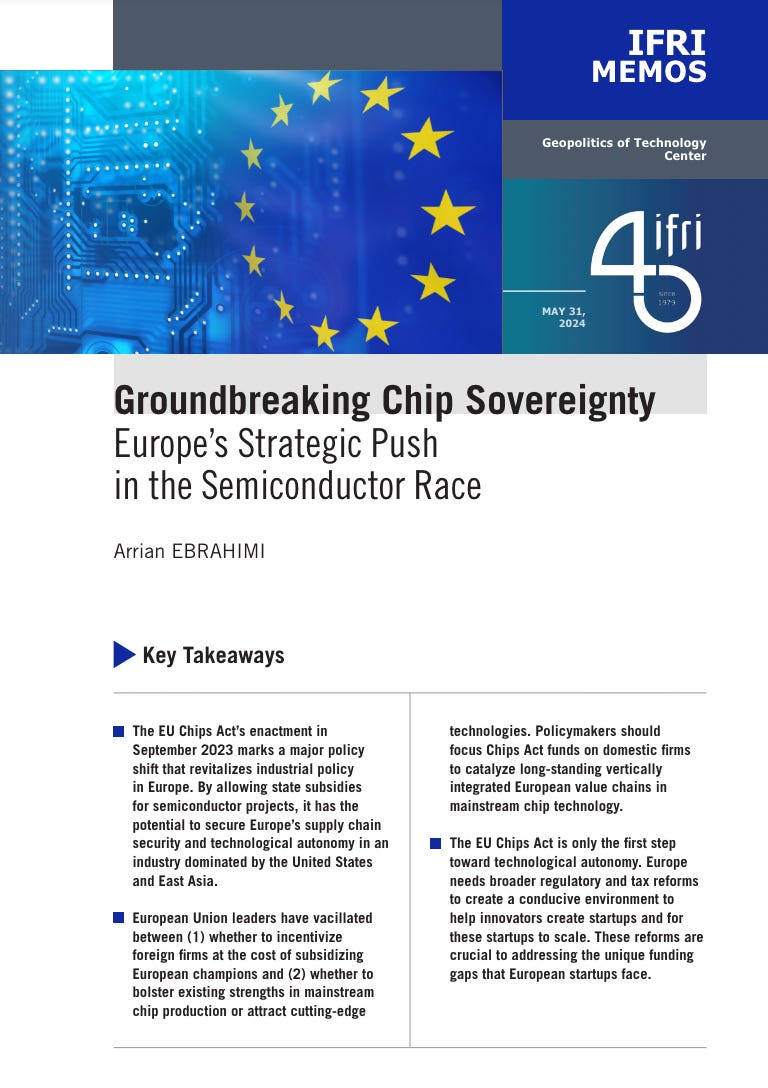REPORT: Europe’s Strategic Push in the Semiconductor Race
Published in the French Institute of International Relations (Ifri)
The EU Chips Act’s enactment in September 2023 marks a major policy shift that revitalizes industrial policy in Europe. By allowing state subsidies for semiconductor projects, it has the potential to secure Europe’s supply chain security and technological autonomy in an industry dominated by the US and East Asia.
European Union leaders have vacillated between (1) whether to incentivize foreign firms at the cost of subsidizing European champions and (2) whether to bolster existing strengths in mainstream chip production or attract cutting-edge technologies. In this briefing, I argue that EU policymakers should focus their Chips Act funds on domestic firms to catalyze long-standing vertically integrated European value chains in mainstream chip technology.
The EU Chips Act is also only the first step toward technological autonomy. Europe needs broader regulatory and tax reforms to create a conducive environment to help innovators create startups and for these startups to scale. These reforms are crucial to addressing the unique funding gaps that European startups face.
This memo lays out:
What challenges Europe faces in computing,
How disciplined implementation of the Chips Act can bolster the continent’s existing strengths, and
What further policy reforms could make the EU indispensable in broader swaths of the future chip industry.
EU leaders must be honest with what the bloc’s current levels of public funding can reasonably expect to achieve. Thank you to the French Institute of International Relations (Institut français des relations internationales) for the opportunity to share my views. The full report is available here.





